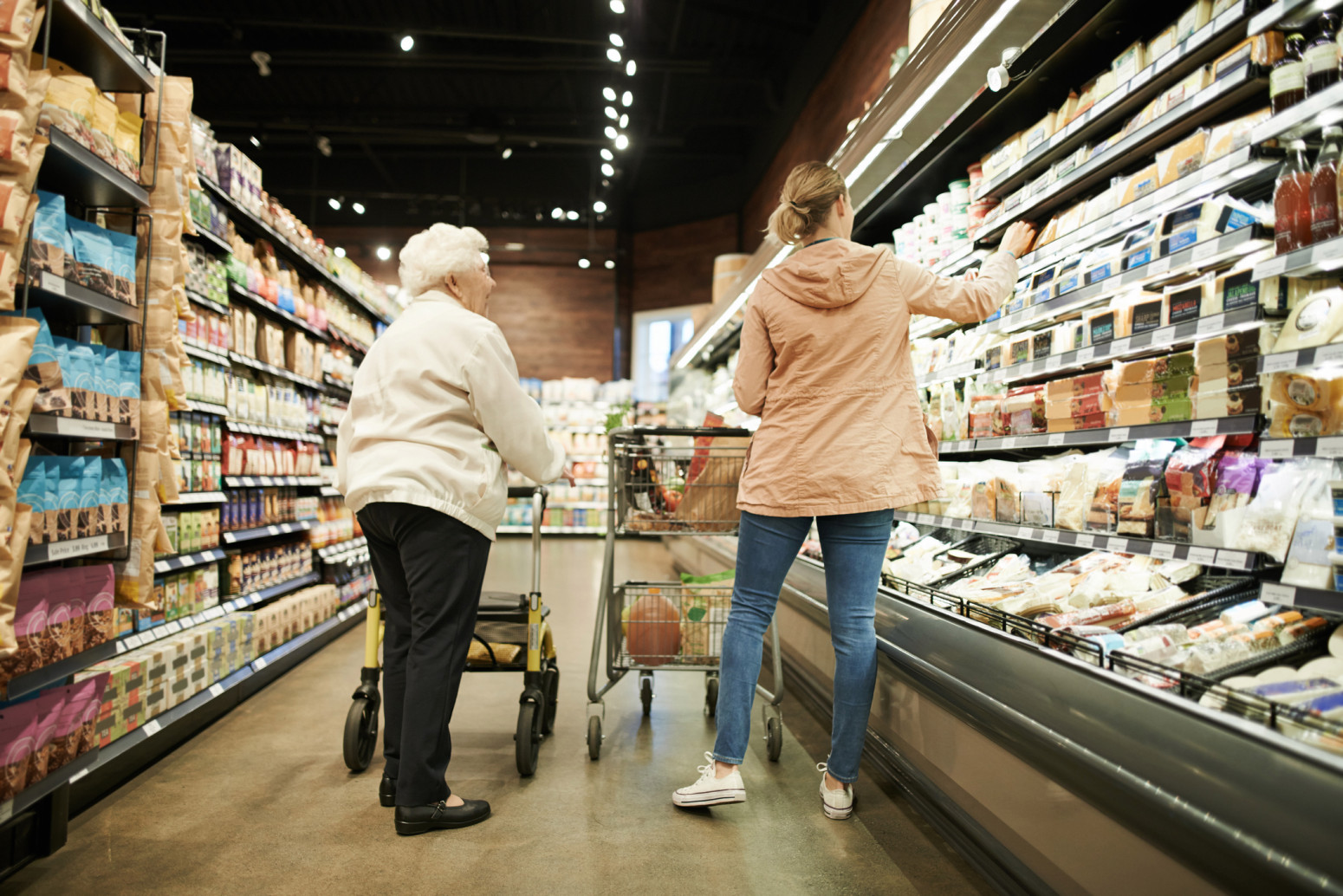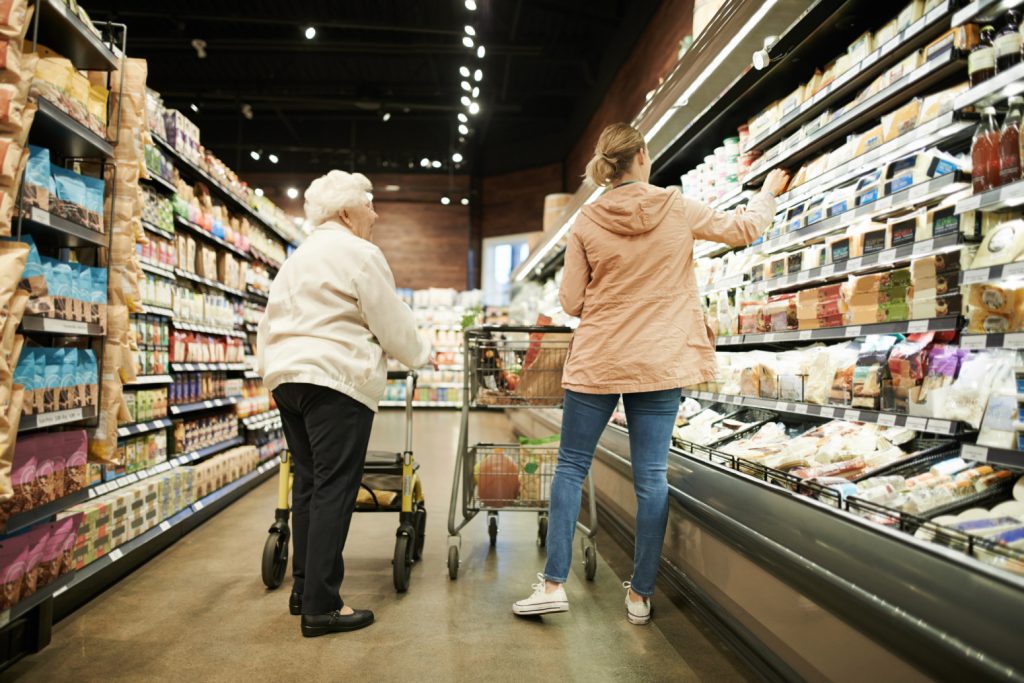No individual can stop the coronavirus from spreading. But we can make crucial changes — big and small — to protect and help the people around us
This article first appeared on Buzzfeednews.com.
Most Americans are hearing the same thing, repeated over and over again, about the risk of contracting the coronavirus currently spreading across the country and the world: If you’re generally healthy, under 65, and you develop COVID-19, the chances are high that you’ll only experience relatively mild symptoms — something like the flu. Sure, the town of New Rochelle is now a containment zone, several members of Congress are in self-quarantine, the government of Italy has shut down all nonessential movement throughout the entire country, and it’s still incredibly difficult to get yourself tested for the virus in the US. But the president believes that the media is overreacting, and continues to underline that “the risk is low to the average American.”
That’s true — the risk of dying or being hospitalized because of this virus is indeed low for the average American. But for those who are older, or have existing medical conditions that might make them more vulnerable, that risk looks a lot higher. Think about it this way: You might not suffer, but your community almost certainly will.
We’re in a weird, anxious moment: The number of confirmed cases in the US just hit 1,000, and the number of people being tested remains low; what’s happening in Italy and Iran feels like a preview of what’s to come. When we know so little, it’s hard not to worry about how the continued spread of the virus will affect each of us on an individual level. Still, what you do now shouldn’t just be about mitigating your personal risk, but everyone else’s. How would you alter your behavior if someone you loved or lived with was at high risk of becoming seriously sick or dying? What if you behaved that way, even if you don’t love or live with someone in that position?
That’s a theoretical proposition that seems incredibly difficult for most Americans to follow through to real-world conclusions or actions. One of country’s most cherished ideologies is a belief in the power and centrality of the individual: that every person succeeds or fails because of their personal effort, or grit, or stamina, and every person deserves whatever success or failure follows. Or, slightly less charitably, the idea that everyone’s first priority is looking out for me and mine — and the idea that if you’re fine, then everything’s fine.
Apply this philosophy to a pandemic that’s spreading across the world, and you get what’s happening right now in the United States: I’m fine — or I will be fine — so everything’s fine.
In the very best-case scenario, many people will die because of the coronavirus. Many people have already died — both in the United States and across the globe. And the US is particularly susceptible to epidemic spread, thanks to the combination of our broken health care system (specifically, the number of people who are un- or under-covered by medical insurance, and thus will opt not to seek care) and the lack of any federal paid sick leave policies, which gives many workers no other choice but to report to work for as long as possible, even when they begin to feel ill.

Peter Aldhous / BuzzFeed News / Via Johns Hopkins University CSSE
This map shows confirmed cases of the coronavirus in the US, state by state.
At this point, there’s still some hope of “containing” the virus, as both South Korea and China have through extensive testing and quarantine orders. As individuals, we can’t control whether or not that happens. But we can collectively work to mitigate the speed and scope of that spread — to “flatten the epidemic curve” so that not everyone gets sick at once and completely overwhelms the medical system, making it difficult or impossible for people with COVID-19 or unrelated illnesses and emergencies (heart attacks, pregnancy complications, allergic reactions, etc.) to receive care. As Zeynep Tufekci put it in a recent piece for Scientific American:
“We should prepare, not because we may feel personally at risk, but so that we can help lessen the risk for everyone. We should prepare not because we are facing a doomsday scenario out of our control, but because we can alter every aspect of this risk we face as a society [….] you should prepare because your neighbors need you to prepare — especially your elderly neighbors, your neighbors who work at hospitals, your neighbors with chronic illnesses, and your neighbors who may not have the means or the time to prepare because of lack of resources or time.”
The problem is that most of us, at least based on the conversations I’ve had and observed in the past few days, are still conceiving of “preparedness” in terms of how we can amass the goods necessary to live in isolation for a few weeks — toilet paper, pasta, hand sanitizer (if you can find any). That’s certainly the main way I’ve been thinking about preparing, in part because it’s the most straightforward — and, as Americans, we’ve been trained that the best way to make ourselves feel better about vague fear is to buy things. But that mindset is the opposite of what Tufekci is trying to ultimately cultivate. It’s the deeply flawed idea, again, that so long as I am fine, then everything is fine.
This mindset is, quite simply, contagion fuel. And it’s hardest to combat in moments like this one, when the most important actions are preventative ones. Buying toilet paper — but not so much that no one else can get any — sure. Obsessively and thoroughly washing your hands, of course. But we also have to start thinking about how our habits, our compulsions, and our desire to keep living life completely as usual — because there’s (seemingly) nothing wrong with us — will have ripple effects that will almost certainly lead to other people’s deaths or significant illnesses.
Does that mean canceling daily life? In most places in the United States, not yet — although there’s a very strong argument for canceling any public gatherings. Right now, every single action has to be weighed against its larger ramifications, and some decisions that might help prevent the spread of the coronavirus have a cost that’s still too high to offset. In New York City, for example, so many children rely on food provided by their schools that canceling school, at least right now, would create a massive hunger problem.Can you understand how making the next few months better for as many people as possible will also, by extension, make it better for you?
But big, top-down changes like that are only part of the picture. As Caitlin Rivers, an assistant professor at the Johns Hopkins Center for Health Security, put it, “Community interventions like event closures have an important role in limiting Covid transmission, but individual behavior changes are even more important. Community interventions are temporary and socially and economically costly. Individual actions are powerful and permanent.”
And so — and I say this as much to myself as to all of you — we can change our behavior to lessen the risk we pose to other people. Limit your travel; work from home if you can. Making sure you don’t pass the virus on to someone who might be more severely impacted by it is the most important way you can help. But we can also channel some of our anxious energy away from reading articles on the internet and toward thinking about who in our lives and in our communities will certainly need help or assistance.
Who can you talk to now to make a plan to help them later? (With supplies, with groceries, with caring for their pets or children or parents.) Can you start a group text now with your neighbors to keep up on one another’s health and needs? If you’re able, can you donate to your local food bank, which will be supplying families whose income is curtailed, or donate additional supplies to the homeless shelter? Can you buy things from local businesses, restaurants, and artists now (or buy a gift card!) so that things might be less lean for them in the months to come?
If you’re someone who’s at high risk, how can you be honest with yourself and others about it? If you’re able to work from home and still pull your normal salary, can you commit to still paying someone who provides you with a service (a housecleaner, a hairdresser, a babysitter, a yoga teacher, a manicurist) even if they have to stay home? If you know someone who might lose their job or see their hours cut back, can you ask them how to help?
Can you understand how making the next few months better for as many people as possible will also, by extension, make it better for you?
Earlier today, I was talking with a friend who lives in the Mountain West, in one of the most rural places in the United States. She spent yesterday in a meeting with other county officials about their plan for when the coronavirus reaches their community. Some of it was straightforward public health education — telling farmers that “quarantine” doesn’t mean they “can’t go feed the cows” — but a lot of it had to do with preventative planning (what to do if someone gets sick at the county courthouse, which is physically connected to the county’s nursing home and the health center’s emergency room).
But the ~1,200 members of the community have been through a significant natural disaster before, and they know how to take care of one another. They know who would need regular check-ins, who would need to have prescriptions picked up for them hundreds of miles away, who would need support if their income was cut off by quarantine. Their community is small enough that every death, every tragedy, and every joy reverberates through it. And they are planning now — even though the virus has yet to hit anywhere in their state — with each of those people in mind.
“We think that anything we can do to prepare to protect our vulnerable residents is worth it,” my friend told me. “Because we could absolutely never forgive ourselves if we didn’t take the time to plan.”
Many of us are still thinking of the “seriousness” of the coronavirus uniquely within the context of our small circles of friends and family members. And if no one is sick, right now, within that group, we’re interpreting it as an all-clear. Lots of us live in big, impersonal cities; most of us certainly don’t have communities as tightly knit as my friend’s, as varied in terms of age and or as vulnerable in terms of health. But what if we all behaved as if we did?
Article and Images Source:


